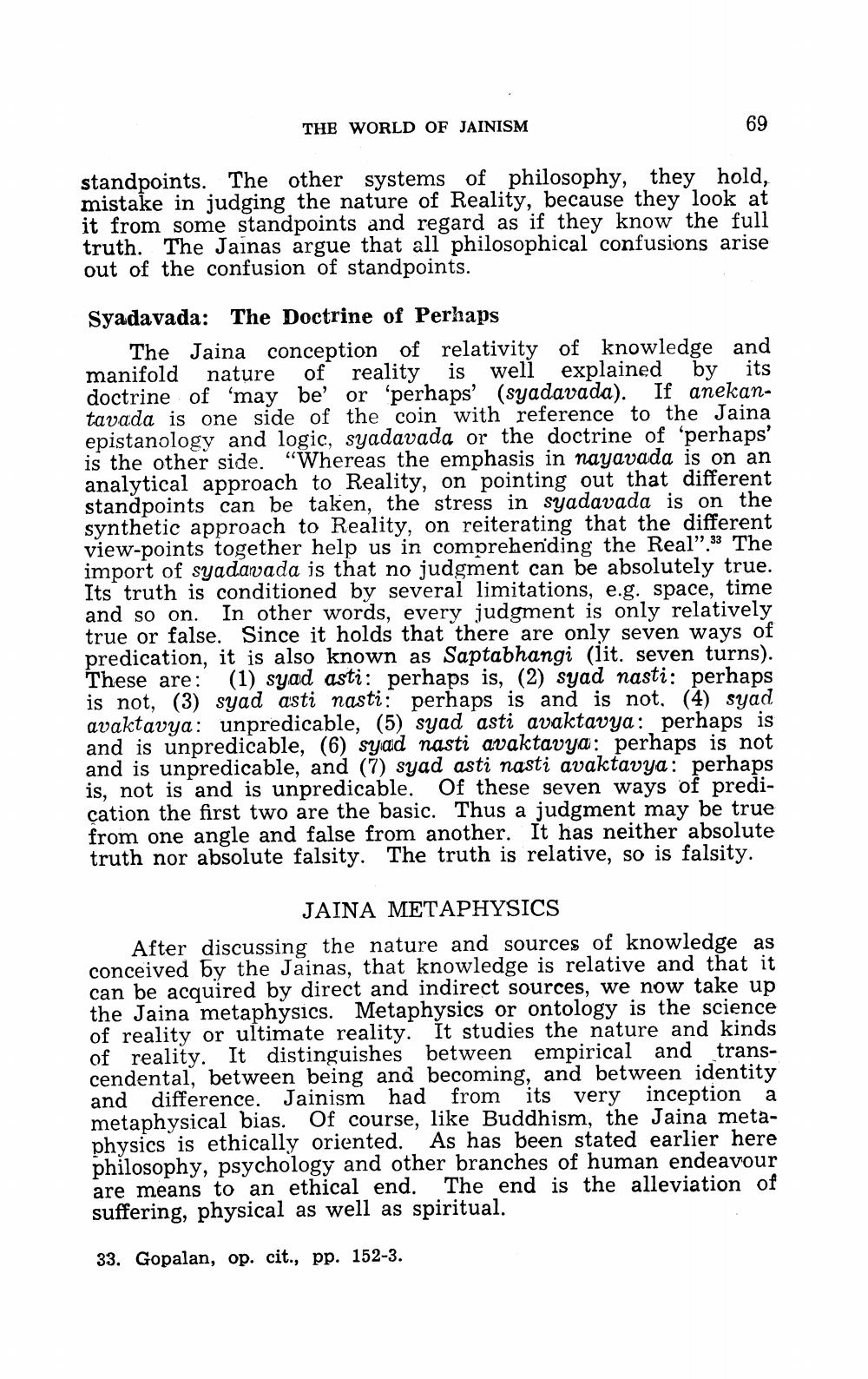________________
THE WORLD OF JAINISM
69
standpoints. The other systems of philosophy, they hold, mistake in judging the nature of Reality, because they look at it from some standpoints and regard as if they know the full truth. The Jainas argue that all philosophical confusions arise out of the confusion of standpoints.
Syadavada: The Doctrine of Perhaps
The Jaina conception of relativity of knowledge and manifold nature of reality is well explained by its doctrine of 'may be' or 'perhaps' (syadavada). If anekantavada is one side of the coin with reference to the Jaina epistanology and logic, syadavada or the doctrine of 'perhaps' is the other side. "Whereas the emphasis in nayavada is on an analytical approach to Reality, on pointing out that different standpoints can be taken, the stress in syadavada is on the synthetic approach to Reality, on reiterating that the different view-points together help us in comprehending the Real". 33 The import of syadavada is that no judgment can be absolutely true. Its truth is conditioned by several limitations, e.g. space, time and so on. In other words, every judgment is only relatively true or false. Since it holds that there are only seven ways of predication, it is also known as Saptabhangi (lit. seven turns). These are: (1) syad asti: perhaps is, (2) syad nasti: perhaps is not, (3) syad asti nasti: perhaps is and is not, (4) syad avaktavya: unpredicable, (5) syad asti avaktavya: perhaps is and is unpredicable, (6) syad nasti avaktavya: perhaps is not and is unpredicable, and (7) syad asti nasti avaktavya: perhaps is, not is and is unpredicable. Of these seven ways of predication the first two are the basic. Thus a judgment may be true from one angle and false from another. It has neither absolute truth nor absolute falsity. The truth is relative, so is falsity.
JAINA METAPHYSICS After discussing the nature and sources of knowledge as conceived by the Jainas, that knowledge is relative and that it can be acquired by direct and indirect sources, we now take up the Jaina metaphysics. Metaphysics or ontology is the science of reality or ultimate reality. It studies the nature and kinds of reality. It distinguishes between empirical and transcendental, between being and becoming, and between identity and difference. Jainism had from its very inception a metaphysical bias. Of course, like Buddhism, the Jaina metaphysics is ethically oriented. As has been stated earlier here philosophy, psychology and other branches of human endeavour are means to an ethical end. The end is the alleviation of suffering, physical as well as spiritual.
33. Gopalan, op. cit., pp. 152-3.




